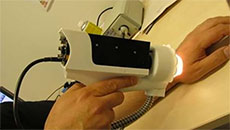What if, instead of sending humans to other planets, we made an exact copy on the site and colonised other planets to ensure survival of the human race for eons?
This was an idea floated by biologists Gary Ruvkun, George Church and their colleagues at Harvard Medical School in the US, which has now found resonance in NASA engineer Adam Seltzner as he spoke of launching humans as bacteria on other planets and devising methods to print them.
Many scientists believe that the only way to guarantee the long-term survival of the human race is to colonise other planets.
"Our best bet for space exploration could be printing humans, organically, on other planets," said Steltzner at Smithsonian Magazine’s 'Future Is Now' conference in Washington, DC, recently.
“Maybe, we will colonise other worlds not with astronauts in space suits but with bacteria,” Seltzner noted as he outlined the idea of sending human genome to far-flung areas.
The Harvard scientists earlier suggested that fractions of the human genome could be sent to distant worlds in bacteria.
Upon arrival, the various segments would then be reassembled into a human genome.
How these bacteria would grow into humans is up for debate and these proposals are something that will only be possible for humans hundreds, or perhaps thousands, of years in the future, Daily Mail reported.




